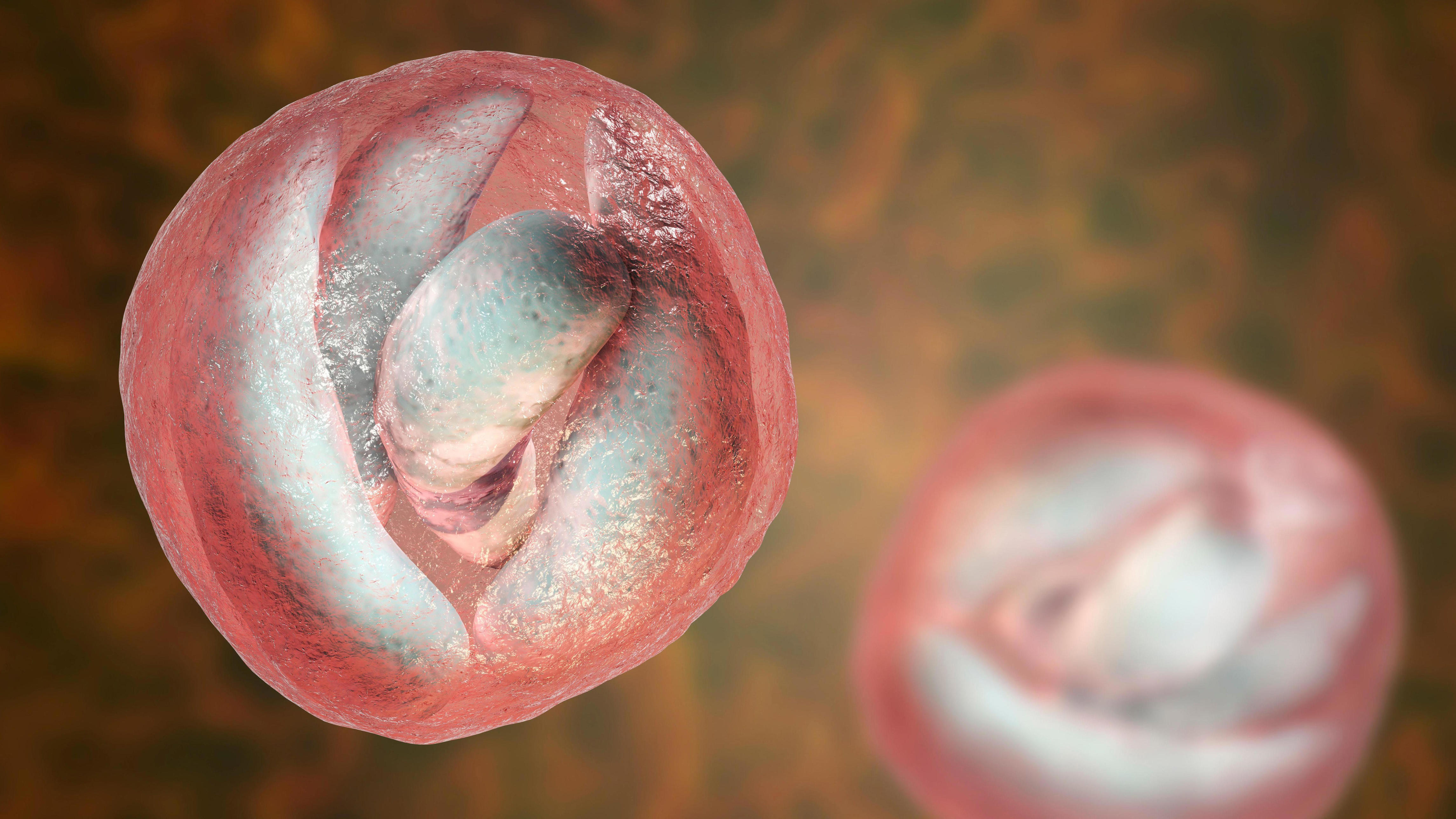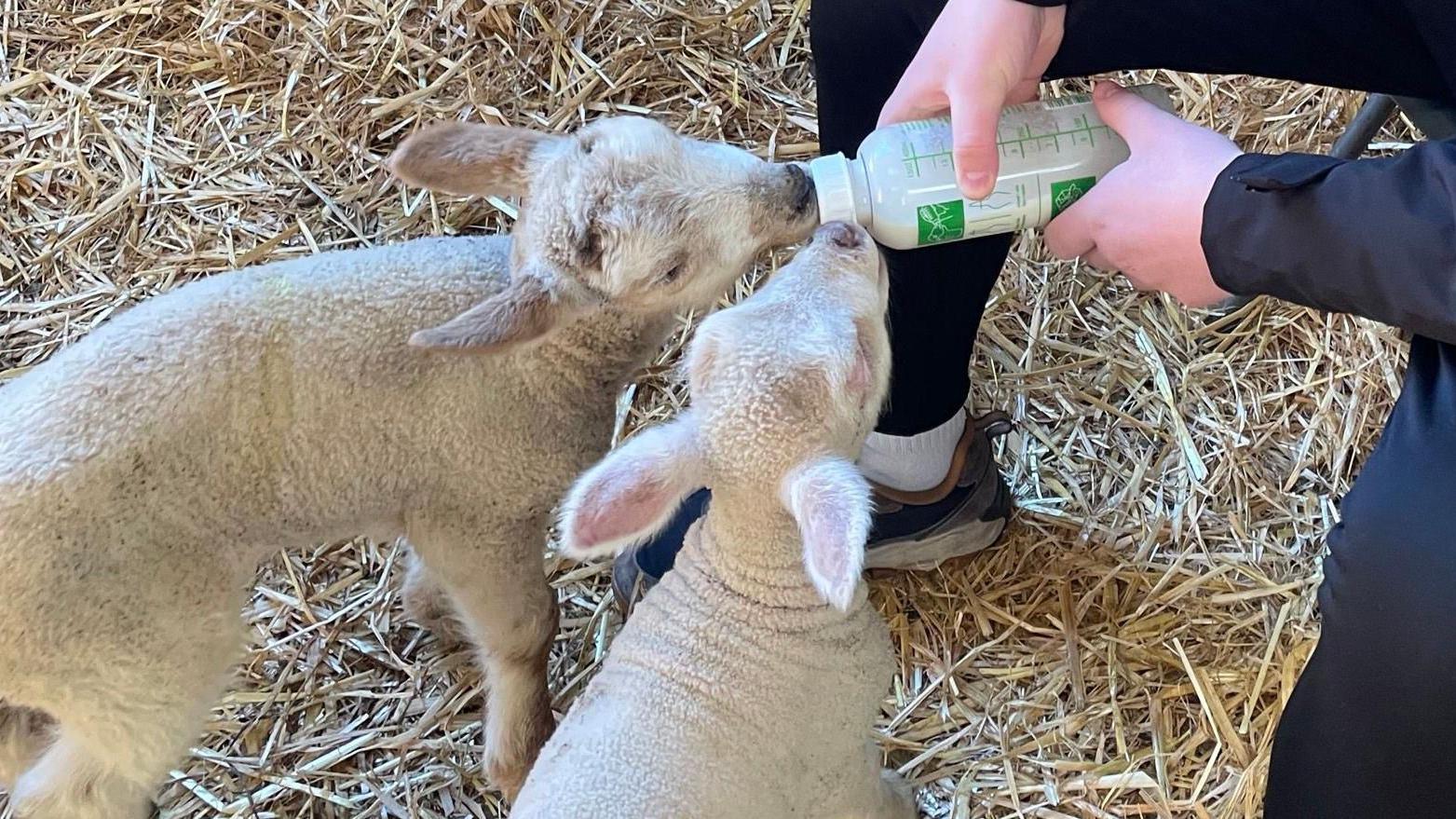Individuals visiting farms for lamb feeding activities are being advised against kissing, hugging, and holding the animals following an outbreak of a parasitic disease that leads to severe digestive issues.
The Welsh Public Health Service has recommended that farmers organizing the events refrain from allowing close interaction with lambs.
There were 17 instances ofcryptosporidiosisconnected to farms in England and Wales in 2024, whereas earlier this year over 80 individuals became sick from infections associated with a petting farm in the Vale of Glamorgan.
Tolong support kita ya,
Cukup klik ini aja: https://indonesiacrowd.com/support-bonus/
The illness resulted in 16 individuals needing overnight hospital treatment,including a four-year-old boy.
A study conducted by PHW indicated that individuals with higher levels of interaction were significantly more prone to contract cryptosporidium compared to those who did not come into contact with the animals.
The findings from the health organization were released following a significant cryptosporidium outbreak in the spring of 2024, during which over 200 individuals became sick, with 18 requiring hospitalization.
Children younger than 10 had a fourfold higher chance of getting sick, it reported.
Cryptosporidium is often linked to interaction with livestock and can transmit quickly between individuals, presenting a higher danger for young children and people with compromised immune systems.
Common signs usually emerge between two and 10 days following contact and may persist for as long as two weeks.
The guidance is part of a series of suggestions outlined in a report examining a significant cryptosporidium outbreak affecting individuals.
Gareth Carpenter and Kate Wiejak’s son, Michael, went to Cowbridge Farm Shop at Marlborough Grange Farm in Cowbridge, Vale of Glamorgan, with his grandmother, Margaret Carpenter, on April 11th this year.
The couple from Bridgend stated that Margaret “ensured” Michael washed his hands afterward, as well as using hand sanitizer.
However, on April 14, while the family was vacationing in Spain, Michael began to feel sick, experiencing a high fever and diarrhea. He remained extremely ill throughout the night, so the next day, they contacted emergency medical services, who instructed them to take Michael to the hospital.
Doctors said Michael suffered from a severe illnessand he was hospitalized for three days.
After returning to Wales, Michael still experienced a “bad belly,” so they took him to see a general practitioner on April 22, who asked for a stool sample.
Gareth mentioned that he got a call from PHW the next day informing him that the test results indicated Michael had contracted cryptosporidium.
Both Kate and Gareth later fell ill with comparable, though significantly less severe, symptoms. Gareth mentioned that he was still dealing with stomach cramps more than four weeks after Michael had interacted with the animals.
Additional suggestions in the report focused on improving access to handwashing stations, such as basins equipped with both hot and cold running water, liquid soap, and paper towels.
Hand sanitizer or alcohol gel is ineffective against cryptosporidium, according to PHW.
It mentioned that there should also be clear signs reminding individuals to wash their hands frequently while they are on the property, and visitors should make sure to launder their clothing as soon as feasible following their visit.
Farmers need to be informed about current guidelines while organizing open farm events and should inform visitors about the potential infection risks when reserving attendance.
What is cryptosporidium?
- A microscopic parasite known as Cryptosporidium can lead to a disagreeable and potentially hazardous condition referred to as cryptosporidiosis.
- It resides in the intestines of infected humans and animals and is excreted through their feces.
- It may then contaminate water sources such as lakes, rivers, and swimming pools, as well as food items like raw milk.
- The disease can impact any individual but is most frequently observed in children between the ages of one and five.
- Symptoms, which typically last for approximately two weeks, involve intense watery diarrhea, vomiting, abdominal pain, feeling sick, fever, and a reduced desire to eat.
- There is no particular treatment, but many individuals experience improvement within a month.
Source: UK Health Security Agency

Dr. Christopher Williams, a consultant epidemiologist with PHW, stated that lamb feeding events are becoming more popular, particularly among families, but can lead to significant risks.
“This report indicates that when young children have close interaction with animals such as lambs—like hugging, kissing, or rubbing their faces against them—there is a notable risk of acquiring the infection, which may lead to severe illness and require hospitalization,” he said.
The report suggested that feeding lambs or calves should be monitored and carried out with the animals kept separate from visitors through their enclosures, allowing people to still bottle feed the animals while having better protection from disease.
Dr. Williams emphasized that it is “essential” for farmers who intend to organize any visitor events featuring animal interactions to become familiar with the current guidelines and implement every possible precaution to guarantee a secure experience for their guests.
He mentioned that PHW would also like farmers to inform visitors about the risks associated with close interaction with young animals, ensuring individuals are educated prior to their visit.
I would recommend that any farmers thinking about opening their farms for these events take into account all potential risks and plan well in advance to ensure they can make all required preparations to keep their visitors safe from infection.







